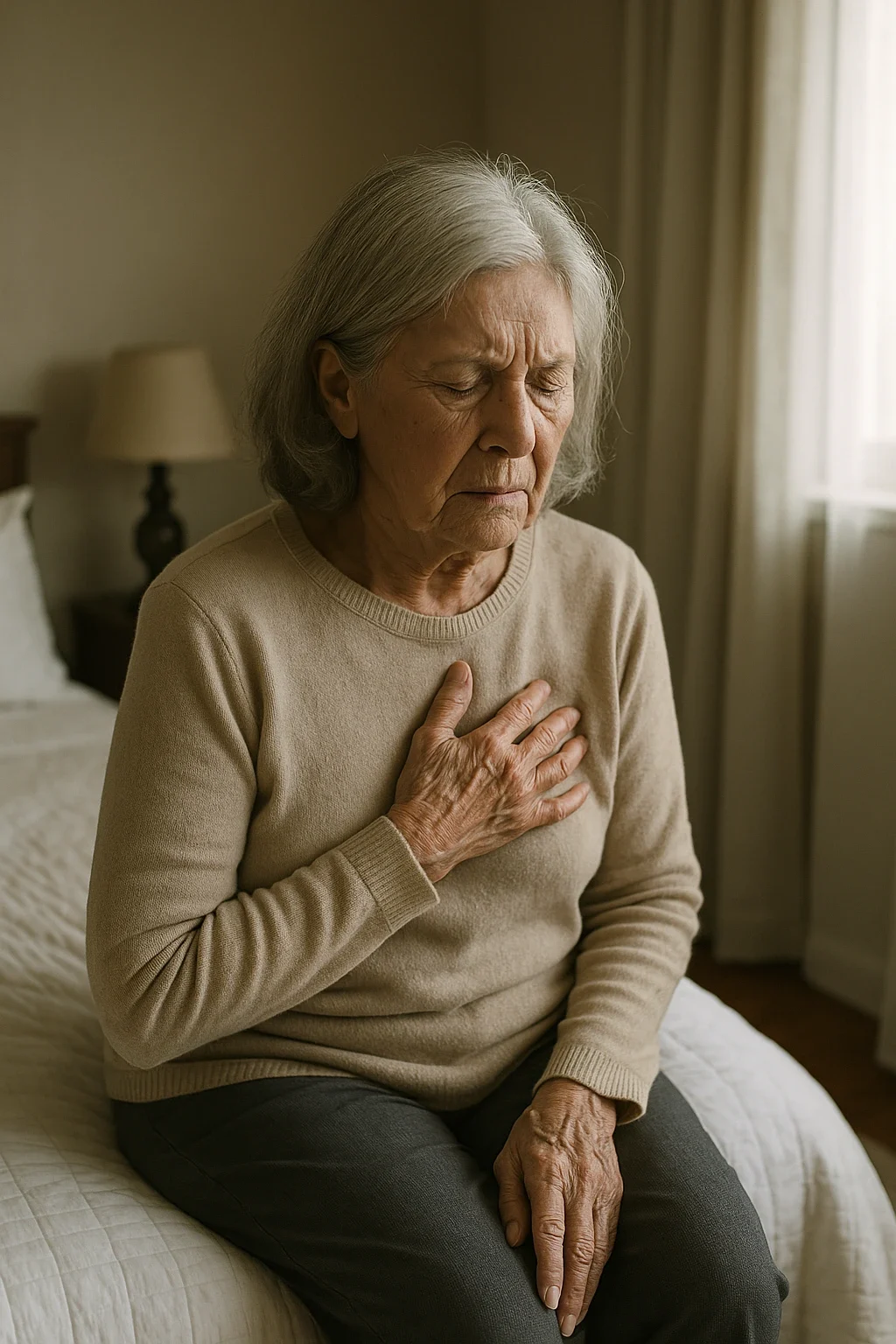What Are Heart Palpitations?
Heart palpitations are fast-beating, fluttering, pounding, or irregular heart rhythm sensations. One can feel like their heart is skipping beats or racing. These sensations may occur in the chest, throat, or neck and can happen during activity or rest.
While palpitations are often harmless and temporary, they can sometimes indicate underlying heart conditions such as arrhythmias (irregular heart rhythms), which might require medical attention.
Causes of Heart Palpitations
Palpitations can be triggered by several factors. It can be both physiological (mostly less serious) and pathological (due to some underlying disease).
- Lifestyle and emotional factors: Stress, anxiety, panic attacks, vigorous physical activity, lack of sleep, dehydration, and hormonal changes during menstruation, pregnancy, or menopause.
- Stimulants: Caffeine, nicotine, alcohol, cocaine, amphetamines, and certain medications (e.g., some cold medicines, antihistaminics).
- Medical conditions: Fever, anemia (iron deficiency), thyroid imbalances (hyperthyroidism or hypothyroidism), electrolyte imbalances (e.g., potassium or calcium), and arrhythmias (irregular heartbeats).
- Cardiac diseases: High BP, Irregular or fast heartbeats(eg, Atrial fibrillation, supraventricular tachycardia (SVT), ventricular ectopy), cardiomyopathies, valvular heart disease, etc.
- Other triggers: Abrupt changes in body position (Postural orthostatic tachycardia syndrome).
Signs of High Risk
Heart palpitations may signal a serious issue if accompanied by:
- Chest pain or discomfort
- Severe dizziness
- Fainting
- Shortness of breath
- Persistent or worsening palpitations
- A history of heart disease or other cardiac conditions.
Complications from serious causes can include fainting, stroke (due to atrial fibrillation), cardiac arrest, or heart failure.
When to See a Doctor
You should consult a doctor if:
- Palpitations persist for more than a few minutes.
- They occur frequently or worsen over time.
- You experience additional symptoms like those mentioned above (chest pain, dizziness, fainting, or shortness of breath, etc).
- You have an existing heart condition or are at high risk for heart disease.
Seek emergency care for severe symptoms like chest pain or fainting (syncope).
What to Do About Heart Palpitations
At Home:
- Reduce stress: Practice relaxation techniques like yoga, meditation, and deep breathing exercises.
- Avoid triggers: Cut back on stimulants like caffeine and nicotine (smoking). Avoid alcohol and illegal drugs.
- Stay hydrated: Maintain proper hydration and balanced electrolyte levels.
Medical Treatment:
Medicines are usually prescribed for symptomatic patients.
- Medications such as heart rate-lowering drugs (beta-blockers, CCB, etc).
- Treat underlying conditions like arrhythmias (irregular heartbeats, eg atrial fibrillation, SVT, etc.) with medications or procedures.
Palpitations are common and often harmless, but should not be ignored if they persist or are accompanied by concerning symptoms. Monitoring your triggers and seeking timely medical advice can help ensure optimal heart health.
Citations:
[1] https://www.mayoclinic.org/diseases-conditions/heart-palpitations/symptoms-causes/syc-20373196
[2] https://www.nyp.org/heart/arrhythmias/heart-palpitations
[3] https://www.webmd.com/heart-disease/what-causes-heart-palpitations
[4] https://www.mayoclinic.org/diseases-conditions/heart-palpitations/diagnosis-treatment/drc-20373201
[5] https://www.houstonmethodist.org/blog/articles/2025/jan/what-are-heart-palpitations-when-to-worry/
[6] https://www.webmd.com/heart-disease/atrial-fibrillation/when-see-doctor-your-heart
[7] https://www.webmd.com/heart-disease/heart-palpitations-emergency


Leave a Reply